This article was originally published by Children on the Edge. You can read the article from their page or check out their website by clicking here.
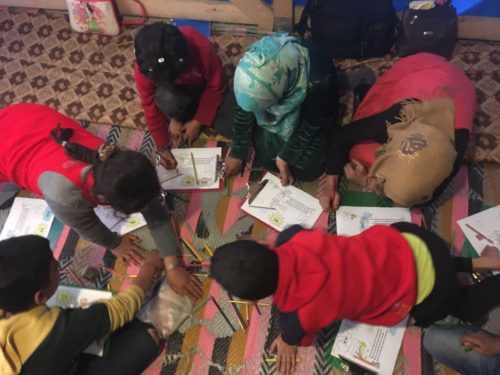
The Syrian refugee children we work with in Lebanon have fled war and conflict, seen their homes destroyed and their families attacked. To start to re-build their sense of wellbeing, it is vital that they start to regain a feeling of normalcy, and begin to recover from trauma in a safe space, with trusted adults.
The
schools we support in the informal refugee settlements of Bekaa Valley provide this environment. A chance to receive a quality education in a child friendly space, with Syrian refugee teachers trained from within the camps. These are safe spaces where they can just be children again, but for the team here, maintaining this space is not without its challenges.
Refugee settlements along the border offer little stability or security and are regularly subject to military raids. Despite their circumstances, the refugee teachers here are dedicated and resilient. They work solidly as a team to create environments for the children that are both colourful and calm, fun and encouraging.
All of this is developed and maintained in the face of many threats. In November, one of the schools, along with two teacher families, were given a week by the military, to move from their present camp location. This happened as a part of a move order for several camp aggregations in the area by the government. After a struggle to find an alternative site, our partners decided to re-build it in the garden space of another school.
Project leader
Nuna Matar said of the move ‘
The teachers of all the schools nearby have worked together really well and helped each other out. They have been flexible and accommodating for each other and shared fuel and supplies when needed. It has displayed great teamwork and camaraderie between them’. The
evacuation and re-building of an entire camp the year before has given the community experience in finding creative solutions, and many people from the camp, and students from other schools helped with the re-build. To help children from the original camp reach the school, a bus and driver were organised.
Recently one teacher was also taken by the secret services during a 5am raid. Armed and masked men kicked open doors and broke into tents, beating the teacher before taking him for interrogation. These raids are becoming a normal practice and a regular routine in camp life, which is distressing for the children.
Later on the teacher was released, and is carrying on regardless of the event. Despite these occurrences, the team’s commitment and skill is seeing children become happier, increasingly confident and more at peace. One teacher called Sawson says “
School is like their second home, when I give the students time to draw, they draw houses and gardens, it has changed from when they use to draw war, and I see by what they draw now that school makes them feel safer. They like to be here”.
This progress is achieved through
training Syrian refugee teachers, who deliver a child-friendly curriculum in the children’s
own dialect, using Montessori techniques. Teachers are taught to help children re-engage, build relationships and find peaceful solutions to problems. Another teacher, Hiba describes some ways they build friendship; ‘
Sometimes in the lessons we give them, we work on some things together to decorate the classroom, every Friday we have a shared meal, they all bring things from their houses and we eat a meal together.’
All these things work together to allow children to be children again, and to support each other. One teacher, Alaa says ‘
The goals we are seeking is to let children forget about war and all the bad things, even for us now when we get involved, we focus on this, and are here to help the children and not think about the difficult situation. Sometimes we try to do something special, if someone has a birthday we plan a surprise together, this way it gives them the working together spirit, they like to help each other’.
Encouragement is a vital part of developing children’s wellbeing. One of the teaching team called Mona says ‘
These children have experienced so much so when they come to the school it is nice to be treated and told in a good way to play together. We give them time to draw things, we try to find their talents and encourage them all the time. We are able to see the change in their faces when they start to smile’.
The team recently had an end of year celebration at the
Beirut community centre. They will be having a graduation ceremony for the children in the camps next month, and comment that
‘We are so proud of the achievement of the children’. In April, they also opened a small library in one of the schools where children can borrow English and Arabic books. Nuna describes how ‘
We had an inauguration party to celebrate this. There was a lot of singing, dancing, and smiling involved’.
Our partners are currently providing education for 550 children, and have more than 100 children on the waiting list. It costs just under £1000 to support a refugee teacher for a term at one of the tent schools, and provide them with full teacher training. The buses provided to get children to the newly moved school, cost £96 each to run each week.
Originally published on 28/6/2017

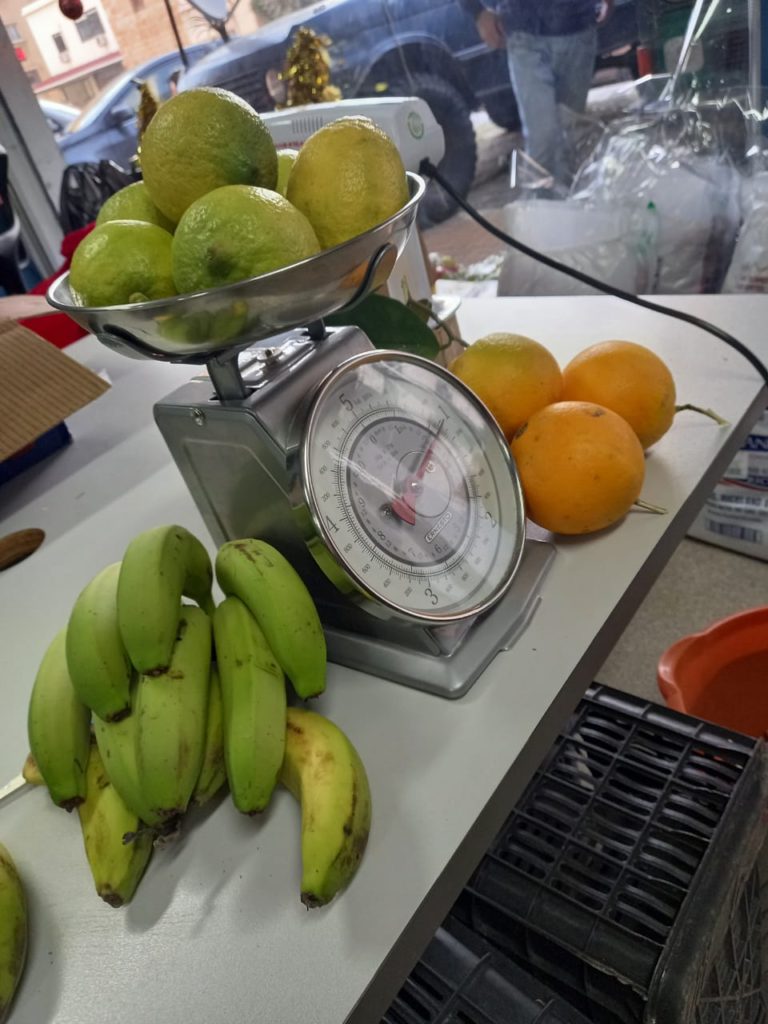
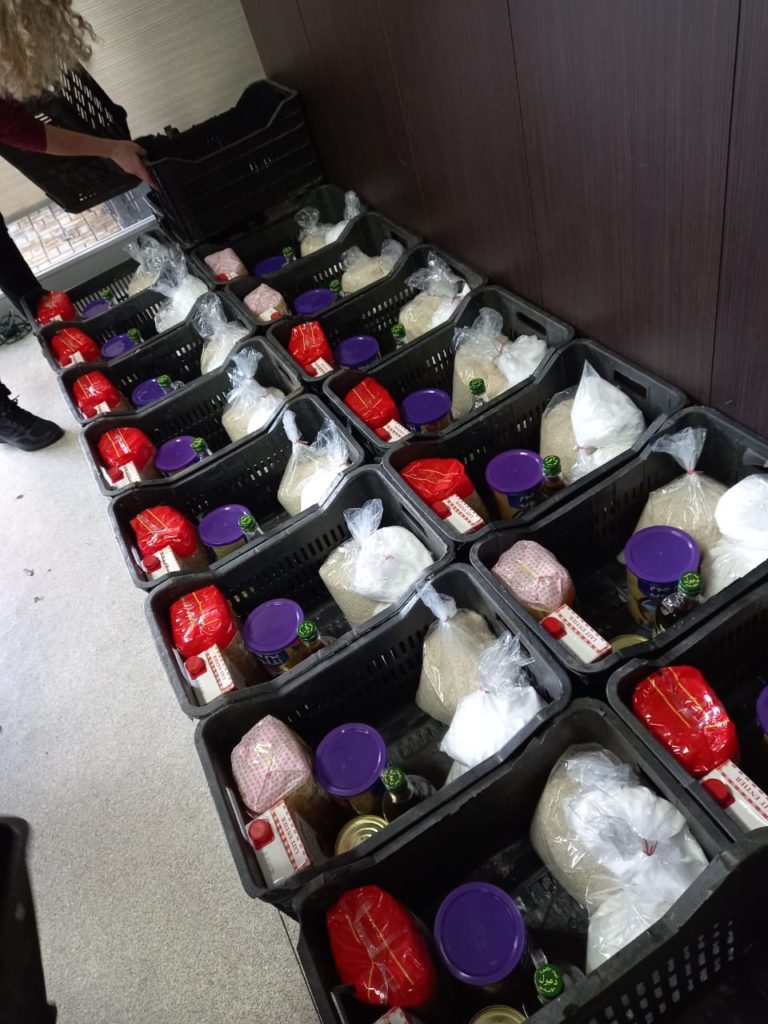
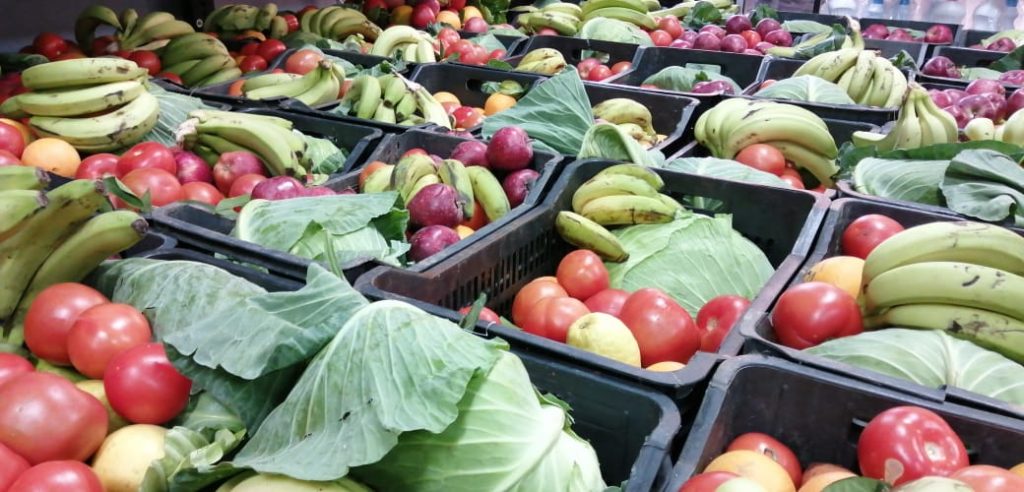
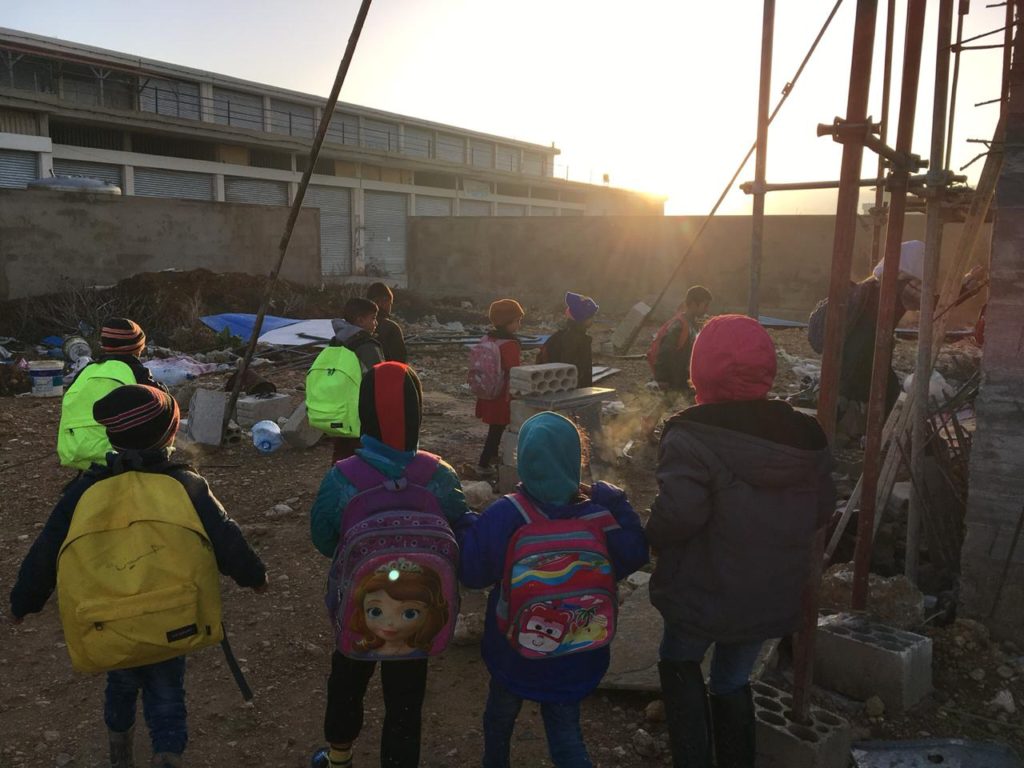
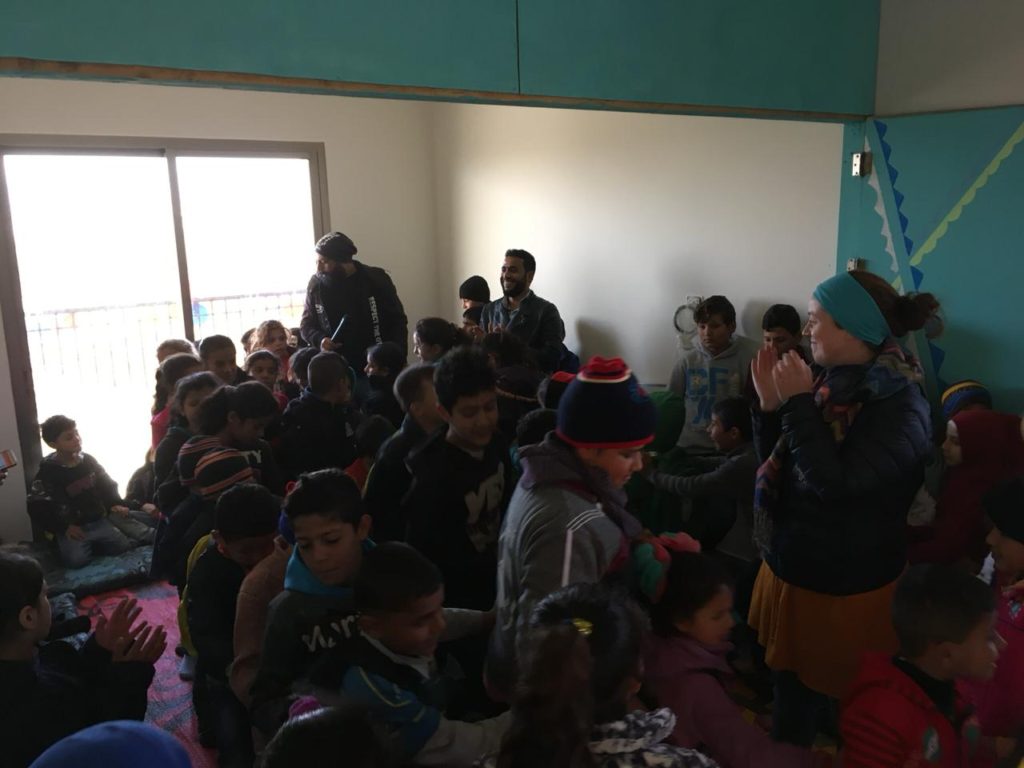
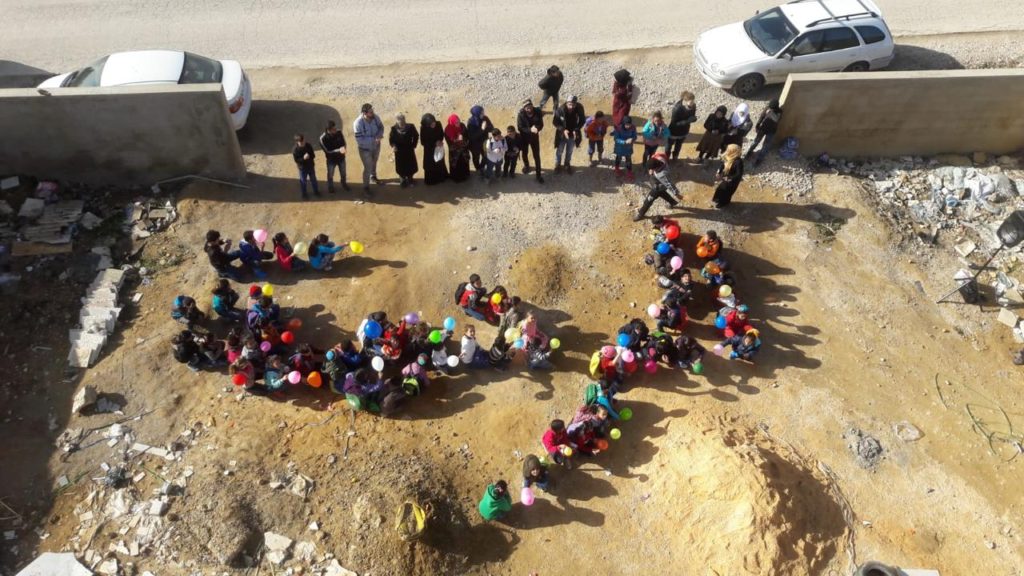
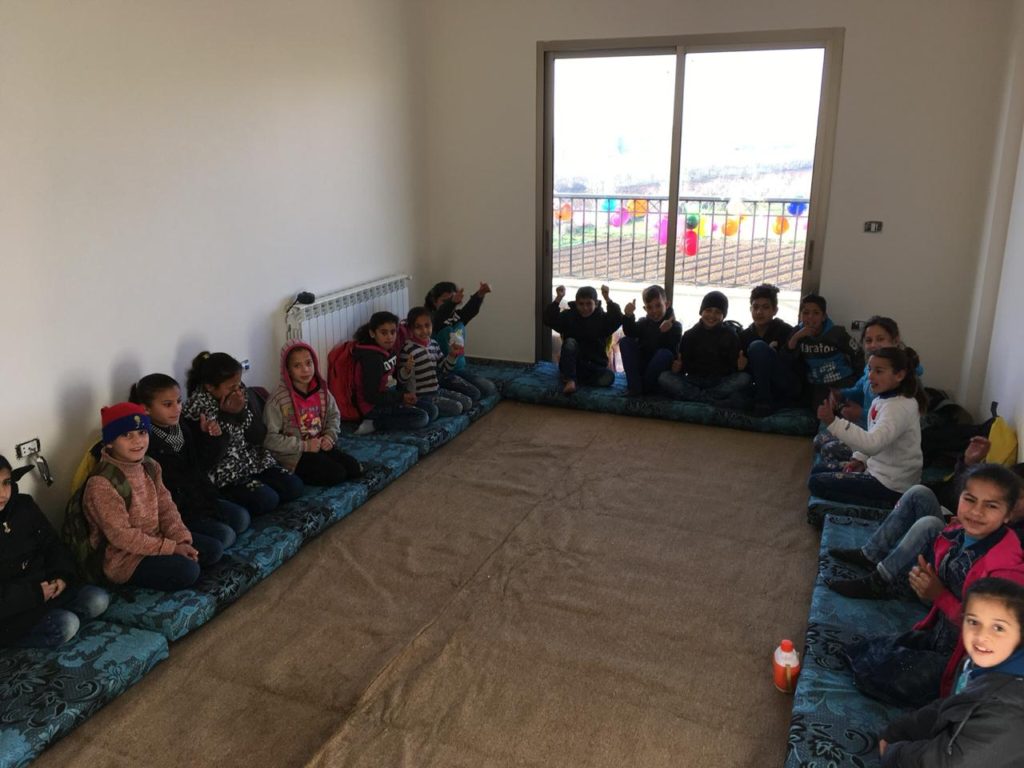
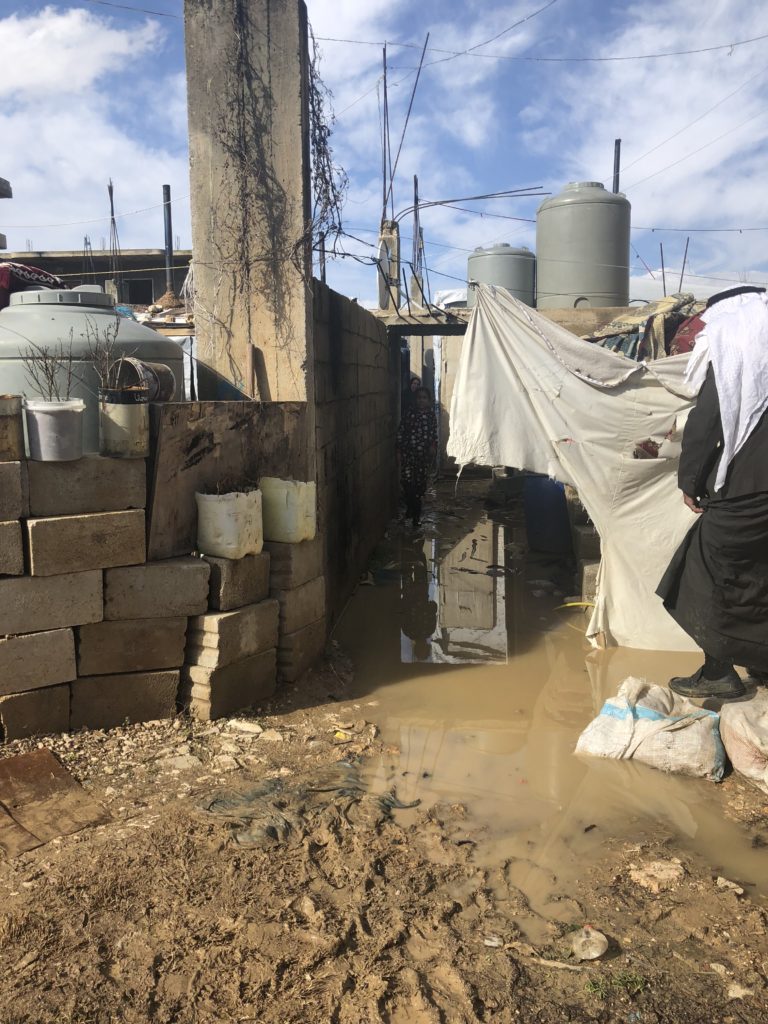
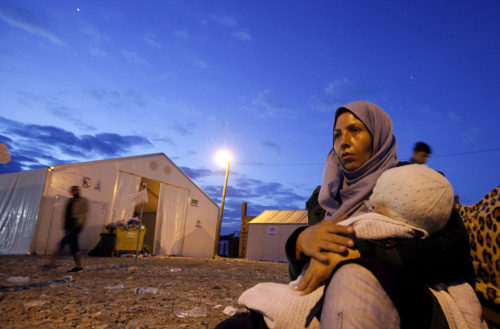
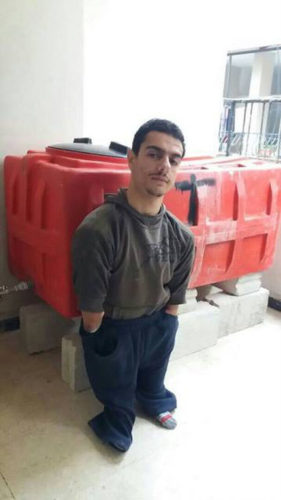
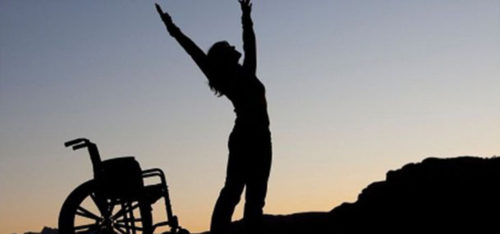

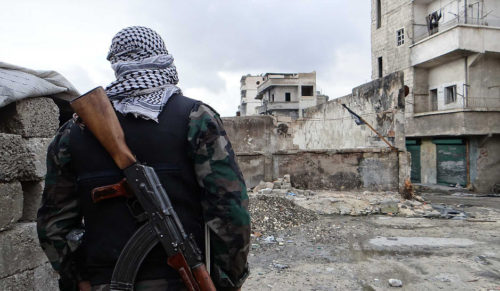 They looked like a normal family: a man, his wife, and two daughters. Little did I know I’d tear up when they started sharing with me what they went through around six months ago.
Al Nosra attacked their house, took the daughters captive and destroyed the place. It was a traumatic experience to them all. The parents had to find refuge and were terrified for their daughters. Just Imagine losing your children.
Their dad kept searching for them and did not give up. He knew that as usual al Nosra sold Christian girls to Muslim men as sex-slaves and that was taking place every three month, so he grew his beard, shaved his mustache, and dressed just like one of them. When the time of the auction came, he looked just like the men that broke into his house.
The girls were standing in line, blindfolded, shaking, scared. They were just a labeled item to be sold. How inhuman men can become without God. As soon as the auctioneer started, their dad stood up and said he wanted to buy them.
They started shaking even more, knowing what these people can come up to; they could imagine how hopeless their situation was going to be. “SOLD” the auctioneer said.
The guards put the girls in the car, with the piece of cloth still on their eyes. They left. Halfway to their house, their father stops the car, turns around, and removes the piece of cloth. They see their dad. They start weeping. All fear was gone. Their father has paid their redemption and they were restored to their family.
They looked like a normal family: a man, his wife, and two daughters. Little did I know I’d tear up when they started sharing with me what they went through around six months ago.
Al Nosra attacked their house, took the daughters captive and destroyed the place. It was a traumatic experience to them all. The parents had to find refuge and were terrified for their daughters. Just Imagine losing your children.
Their dad kept searching for them and did not give up. He knew that as usual al Nosra sold Christian girls to Muslim men as sex-slaves and that was taking place every three month, so he grew his beard, shaved his mustache, and dressed just like one of them. When the time of the auction came, he looked just like the men that broke into his house.
The girls were standing in line, blindfolded, shaking, scared. They were just a labeled item to be sold. How inhuman men can become without God. As soon as the auctioneer started, their dad stood up and said he wanted to buy them.
They started shaking even more, knowing what these people can come up to; they could imagine how hopeless their situation was going to be. “SOLD” the auctioneer said.
The guards put the girls in the car, with the piece of cloth still on their eyes. They left. Halfway to their house, their father stops the car, turns around, and removes the piece of cloth. They see their dad. They start weeping. All fear was gone. Their father has paid their redemption and they were restored to their family.
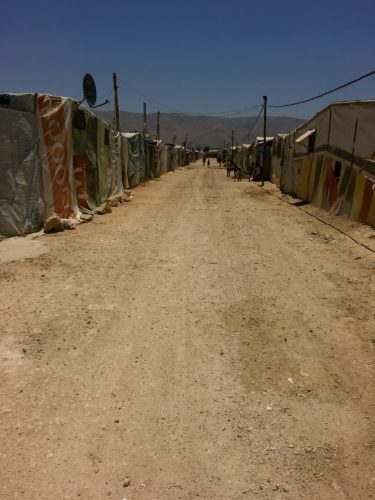 There are currently 28 Syrian refugee teachers at the tent schools we support for refugee children in Lebanon. These people are trained up from within the refugee camps and they not only teach, but are a source of help and advice for parents and the wider community. They are a force for good despite living in a situation completely out of their control.
“The teachers here speak the same dialect of Arabic as their students (often they’re from the same or the neighbouring camp as the children), they get their culture, so nothing gets by them. The teachers are motivated to learn, motivated to be useful, and motivated to be a changing force in their communities.” Nadine – School’s Co-ordinator
The teachers are creating a strong community atmosphere within the settlements and many are looked upon as leaders. These strong relationships between the parents, teachers and other adults in the communities are leading to higher than average attendance and retention rates within the schools. Teachers engage parents in education and to help them to understand the long term benefits for the children.
We’d like to introduce you to four of these teachers, to give you an insight into their work and the amazing things they are achieving.
Halima
Halima is a teacher who has taught with us for two years now, and also works as a trainer. She describes her experience in the tent schools:
“Our work is very focused. We work wholesomely, not just to educate the kids but to help them grow into better, more well rounded people. It’s also been really good to learn how to support our student’s growth in learning not to physically abuse each other, and learning about therapeutic methods to deal with what the kids have seen in war; learning about forgiveness.
I’ve gained so much experience, and this job has encouraged me to grow not just as a teacher but also in my passions. I write stories and songs and poetry and use them to give the children more fun, creative resources to learn. As not just a teacher but also a mother to one of the students, I’m so glad that my son can read and write well, especially when I hear about other schools poor levels of education. I really like that we teach the children to make conclusions instead of pointing everything out to them”.
Mariam
The teachers are regularly observed by our experienced teacher trainer whilst teaching a range of lessons and they receive constructive feedback. They are given time to meet and work with colleagues to plan and evaluate sessions and to share best practice. The class helper is also observed and they receive feedback to ensure they are able to enhance the teaching and learning and the overall classroom environment.
One of the newer teachers from the third school, Mariam said:
“It’s really amazing to see the change in our students compared to what they were like in the very beginning. Initially things were so rowdy, but now that some time has passed, they trust us more, they enjoy school and it’s made things better overall.”
Hala
Hala particularly likes the games and teaching methods used in the classes and the fact that the students have to discover the point of the lesson by themselves which gives them much more enjoyment. She likes that the teachers interact with the children and that the project and craft sessions regularly rotate, keeping the children interested.
“The teaching style brings out the best in the teachers” she explains “it brings out qualities which are hidden in the Syrian teaching system and strengthens the children’s personalities. In this school environment the children have no fear, they are comfortable and talk a lot. They have the courage to speak and play. They are happy in school and they go home happy. I haven’t met a child who doesn’t want to go to school, in fact many don’t want to go home at the end of the day”.
All the teachers are provided with all the materials and resources they need; many they make themselves. Hala enjoys encouraging the children’s creative gifts and feels that through this the children become happy, encouraged and have motivation for life.
“They gain courage to try new things. The children in my class want to be doctors and pilots and some of the girls want to be princesses!” she laughs, “We have some work to do on that one!”.
Omad
Omad finished his university degree in Syria and taught grade 9 science for a year before he had to leave for Lebanon. He has been in Lebanon for over 3 years and had found work in a factory. He now also works for the school 3 days a week, but has to continue working in the factory to support his income.
He loves teaching and said that ‘if I didn’t like it, I wouldn’t do it!’. He has enjoyed learning the new child-friendly methods of teaching and use of resources. He described how learning to teach in the camp schools and teaching in Syria is very different, the Syrian schools he has worked in have a frozen style of teaching and use rote learning.
He says, “At first when I was asked to attend the teacher training I was offended. I felt I did not need training as I already had my teaching qualifications. However I found the training really useful and learnt a lot of new things about how to involve the children and use resources to help them to learn in a fun way using games and jokes”.
The Syrian refugees we train as teachers for our camp schools in Lebanon receive a regular, reliable income which allows them to care and provide for their families. They all receive training and support to build their knowledge and teaching skills, enabling them to excel in their field. They will also be able to use these transferable skills in the future and are constantly learning from each other and developing their practice.
There are currently 28 Syrian refugee teachers at the tent schools we support for refugee children in Lebanon. These people are trained up from within the refugee camps and they not only teach, but are a source of help and advice for parents and the wider community. They are a force for good despite living in a situation completely out of their control.
“The teachers here speak the same dialect of Arabic as their students (often they’re from the same or the neighbouring camp as the children), they get their culture, so nothing gets by them. The teachers are motivated to learn, motivated to be useful, and motivated to be a changing force in their communities.” Nadine – School’s Co-ordinator
The teachers are creating a strong community atmosphere within the settlements and many are looked upon as leaders. These strong relationships between the parents, teachers and other adults in the communities are leading to higher than average attendance and retention rates within the schools. Teachers engage parents in education and to help them to understand the long term benefits for the children.
We’d like to introduce you to four of these teachers, to give you an insight into their work and the amazing things they are achieving.
Halima
Halima is a teacher who has taught with us for two years now, and also works as a trainer. She describes her experience in the tent schools:
“Our work is very focused. We work wholesomely, not just to educate the kids but to help them grow into better, more well rounded people. It’s also been really good to learn how to support our student’s growth in learning not to physically abuse each other, and learning about therapeutic methods to deal with what the kids have seen in war; learning about forgiveness.
I’ve gained so much experience, and this job has encouraged me to grow not just as a teacher but also in my passions. I write stories and songs and poetry and use them to give the children more fun, creative resources to learn. As not just a teacher but also a mother to one of the students, I’m so glad that my son can read and write well, especially when I hear about other schools poor levels of education. I really like that we teach the children to make conclusions instead of pointing everything out to them”.
Mariam
The teachers are regularly observed by our experienced teacher trainer whilst teaching a range of lessons and they receive constructive feedback. They are given time to meet and work with colleagues to plan and evaluate sessions and to share best practice. The class helper is also observed and they receive feedback to ensure they are able to enhance the teaching and learning and the overall classroom environment.
One of the newer teachers from the third school, Mariam said:
“It’s really amazing to see the change in our students compared to what they were like in the very beginning. Initially things were so rowdy, but now that some time has passed, they trust us more, they enjoy school and it’s made things better overall.”
Hala
Hala particularly likes the games and teaching methods used in the classes and the fact that the students have to discover the point of the lesson by themselves which gives them much more enjoyment. She likes that the teachers interact with the children and that the project and craft sessions regularly rotate, keeping the children interested.
“The teaching style brings out the best in the teachers” she explains “it brings out qualities which are hidden in the Syrian teaching system and strengthens the children’s personalities. In this school environment the children have no fear, they are comfortable and talk a lot. They have the courage to speak and play. They are happy in school and they go home happy. I haven’t met a child who doesn’t want to go to school, in fact many don’t want to go home at the end of the day”.
All the teachers are provided with all the materials and resources they need; many they make themselves. Hala enjoys encouraging the children’s creative gifts and feels that through this the children become happy, encouraged and have motivation for life.
“They gain courage to try new things. The children in my class want to be doctors and pilots and some of the girls want to be princesses!” she laughs, “We have some work to do on that one!”.
Omad
Omad finished his university degree in Syria and taught grade 9 science for a year before he had to leave for Lebanon. He has been in Lebanon for over 3 years and had found work in a factory. He now also works for the school 3 days a week, but has to continue working in the factory to support his income.
He loves teaching and said that ‘if I didn’t like it, I wouldn’t do it!’. He has enjoyed learning the new child-friendly methods of teaching and use of resources. He described how learning to teach in the camp schools and teaching in Syria is very different, the Syrian schools he has worked in have a frozen style of teaching and use rote learning.
He says, “At first when I was asked to attend the teacher training I was offended. I felt I did not need training as I already had my teaching qualifications. However I found the training really useful and learnt a lot of new things about how to involve the children and use resources to help them to learn in a fun way using games and jokes”.
The Syrian refugees we train as teachers for our camp schools in Lebanon receive a regular, reliable income which allows them to care and provide for their families. They all receive training and support to build their knowledge and teaching skills, enabling them to excel in their field. They will also be able to use these transferable skills in the future and are constantly learning from each other and developing their practice. 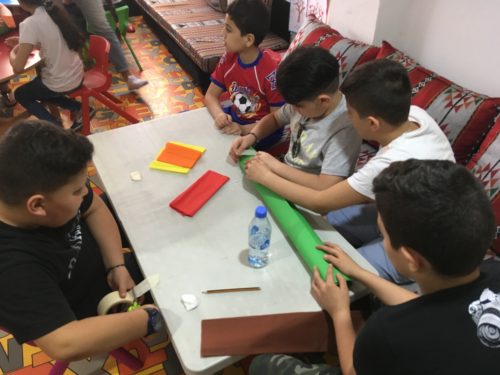 In Bekaa Valley, Lebanon, we work with local partners to provide education for around 500 Syrian refugee children. Most of these children are living in informal settlements on the border and are provided with child-friendly education in tent schools. We support the training of Syrian refugees as teachers, so the children can learn within their own culture and feel a sense of safety and familiarity.
One of the schools for refugees is based in a thriving Community Centre, run by our partners in Beirut. It caters for both Syrian and Iraqi refugees and not only provides education, but is a hub for the wider support of the refugee communities and the Lebanese poor.
Project leader Nuna Matar says “Life is difficult in the refugee settlements, but refugees in Beirut face huge difficulties too. There are people living on rooftops and in garages, they have no facilities, they can’t send their children to school and face a lot of discrimination”.
Over 100 children attend educational classes at the Centre, studying English, Arabic, maths, art and computers. It also provides psycho-social classes for around 300 children, vocational training and adult education. There are monthly clothes distributions and computer lessons for all ages to enable learning and contact with relatives back in Syria and Iraq.
Noora fled her city in Iraq where her husband worked in a restaurant, when it was surrounded by ISIS. They first fled to the north of the country with their three children, witnessing people killed around them and enduring a four hour journey on foot. “Everyone was afraid”, says Noora, ”we left with nothing at all. The children still remember this day and have nightmares”. After a month or so they made the trip to Beirut to find safety.
“Life is very difficult in Beirut. I worry about my children as there are no doctors and medication is too expensive. My husband has found work in construction but not enough for the rent, which is for two small rooms. With my parents, there are now eight people in these rooms. I feel safer here but the children still play games about war and shooting, and we have no security for the future.”
Noora has registered for an English summer school at the Centre to give her more options in the years to come, and her children come along to the education classes. The Centre in Beirut is a lifeline for refugees like Noora. It is attended by around 800 people a day, with new registrations every week.
Find out more about the work we support in
In Bekaa Valley, Lebanon, we work with local partners to provide education for around 500 Syrian refugee children. Most of these children are living in informal settlements on the border and are provided with child-friendly education in tent schools. We support the training of Syrian refugees as teachers, so the children can learn within their own culture and feel a sense of safety and familiarity.
One of the schools for refugees is based in a thriving Community Centre, run by our partners in Beirut. It caters for both Syrian and Iraqi refugees and not only provides education, but is a hub for the wider support of the refugee communities and the Lebanese poor.
Project leader Nuna Matar says “Life is difficult in the refugee settlements, but refugees in Beirut face huge difficulties too. There are people living on rooftops and in garages, they have no facilities, they can’t send their children to school and face a lot of discrimination”.
Over 100 children attend educational classes at the Centre, studying English, Arabic, maths, art and computers. It also provides psycho-social classes for around 300 children, vocational training and adult education. There are monthly clothes distributions and computer lessons for all ages to enable learning and contact with relatives back in Syria and Iraq.
Noora fled her city in Iraq where her husband worked in a restaurant, when it was surrounded by ISIS. They first fled to the north of the country with their three children, witnessing people killed around them and enduring a four hour journey on foot. “Everyone was afraid”, says Noora, ”we left with nothing at all. The children still remember this day and have nightmares”. After a month or so they made the trip to Beirut to find safety.
“Life is very difficult in Beirut. I worry about my children as there are no doctors and medication is too expensive. My husband has found work in construction but not enough for the rent, which is for two small rooms. With my parents, there are now eight people in these rooms. I feel safer here but the children still play games about war and shooting, and we have no security for the future.”
Noora has registered for an English summer school at the Centre to give her more options in the years to come, and her children come along to the education classes. The Centre in Beirut is a lifeline for refugees like Noora. It is attended by around 800 people a day, with new registrations every week.
Find out more about the work we support in  The Syrian refugee children we work with in Lebanon have fled war and conflict, seen their homes destroyed and their families attacked. To start to re-build their sense of wellbeing, it is vital that they start to regain a feeling of normalcy, and begin to recover from trauma in a safe space, with trusted adults.
The
The Syrian refugee children we work with in Lebanon have fled war and conflict, seen their homes destroyed and their families attacked. To start to re-build their sense of wellbeing, it is vital that they start to regain a feeling of normalcy, and begin to recover from trauma in a safe space, with trusted adults.
The 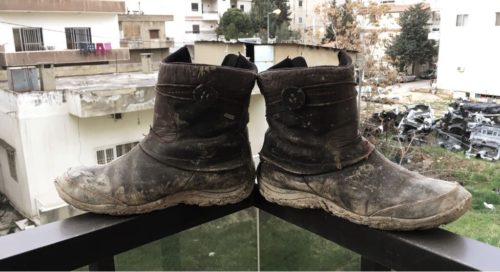 Lebanon (MNN) — The Syrian refugee camps in Lebanon are dusty part of the year and muddy the rest. It doesn’t matter if gravel is put down, or the fact that tents are on concrete slabs. If you go into a camp, you’re going to come out marked.
“I have this certain pair of boots that I wear to camp that are great. I’ve worn them so much in camp that they, I can’t clean them. I have washed them. I have tried to clean them and it’s just, the dirt’s permeated to them that they just are dirty and I track it everywhere and I go everywhere,” Triumphant Mercy’s *Jessica shares.
“And I’ve noticed that whenever I go into Lebanese stores, the grocery store, the bank, or a restaurant or somewhere with the boots, then Lebanese look down at my feet, they see my dirty boots, and they know that I’ve work in the refugee camps.”
The immediate response—why? Why pour your time into helping Syrian refugees?
Enter the long history between Lebanon and Syria, and the most recent war. There’s deep rooted tension built up on both sides, and it’s caused a division. Lebanon was under Syrian occupation for 29 years.
In 1976, Syria entered Lebanon during the Lebanese civil war. Syria’s presence in the country was meant to be a part of an Arab peacekeeping plan. With that said, things didn’t exactly go as planned. When it was time for Syria to withdraw over a two-year period, the country kept its presence in Lebanon another 15 years. Finally, in 2005 Syria left Lebanon.
Lebanon (MNN) — The Syrian refugee camps in Lebanon are dusty part of the year and muddy the rest. It doesn’t matter if gravel is put down, or the fact that tents are on concrete slabs. If you go into a camp, you’re going to come out marked.
“I have this certain pair of boots that I wear to camp that are great. I’ve worn them so much in camp that they, I can’t clean them. I have washed them. I have tried to clean them and it’s just, the dirt’s permeated to them that they just are dirty and I track it everywhere and I go everywhere,” Triumphant Mercy’s *Jessica shares.
“And I’ve noticed that whenever I go into Lebanese stores, the grocery store, the bank, or a restaurant or somewhere with the boots, then Lebanese look down at my feet, they see my dirty boots, and they know that I’ve work in the refugee camps.”
The immediate response—why? Why pour your time into helping Syrian refugees?
Enter the long history between Lebanon and Syria, and the most recent war. There’s deep rooted tension built up on both sides, and it’s caused a division. Lebanon was under Syrian occupation for 29 years.
In 1976, Syria entered Lebanon during the Lebanese civil war. Syria’s presence in the country was meant to be a part of an Arab peacekeeping plan. With that said, things didn’t exactly go as planned. When it was time for Syria to withdraw over a two-year period, the country kept its presence in Lebanon another 15 years. Finally, in 2005 Syria left Lebanon.
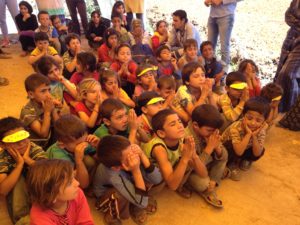 Lebanon (MNN) – Is there really power in prayer? Triumphant Mercy is working with and prays for refugees in Lebanon and they say yes.
“It’s amazing how God just turns hearts,” Triumphant Mercy’s Nuna says.
“This is our prayer actually. We pray for that. We pray that hearts would be opened because it cannot be us. It’s not us who can do it. We have to open hearts and give a revelation of the Father, give a revelation of who Jesus is, and we cannot reveal anything. We can just do the act, but the revelation in the heart cannot be done by us. We need the Holy Spirit every day.”
Triumphant Mercy workers have shown love to refugees by providing food and supplies and building relationships.
The ministry recently took refugee women to a park. Nuna says it cost very little, but the women were full of joy.
“Bringing joy is something that is a privilege. Seeing that we can bring joy with anything, which is a small act of love. And I think this is what it is. It’s just loving people. It’s just showing people that we care.”
Recently, Nuna says God sent the ministry a volunteer who only wanted to distribute food. She says she hadn’t expected this, but “I believe God really knows the need and just brings them at the right time in the right place.”
While many aid organizations have given food, Nuna says Triumphant Mercy doesn’t give refugees food and leave. Instead, they stay or come back so they can build relationships.
They work and live alongside refugees. Because of this, they’re seeing people’s hearts opening to the Word of God. They’re seeing hope and encouragement that is taking root.
“This is amazing just to be able to live life with people.” Nuna says ‘living life’ with the people is simply showing them love.
“I just come and smile or offer a prayer. It’s love. So, love has so many different ways of showing, of being displayed. It can be done by just an act, it can be done by thanks, it can be done by a smile.”
These acts of love have stirred the question ‘why’ in refugees’ hearts and minds. Refugees are asking Triumphant Mercy workers why they stay, treat them with love, and want to build relationships with them.
“Just a why can open a wide conversation… because we have something to share because we have somebody in us who is Jesus Christ who wants to love through us. So, we can just share who we have in us,” Nuna says.
“Somebody who has a physical need and we say let’s pray about that. Somebody who has a worry about her, we pray about that. So, it just shows interest and shows we care and shows practically that we’re here.
One of the ways the ministry is enabled to pray for each person is through their health clinic. They offer services to refugees and pray for every patient.
“Every person that comes in the clinic, we pray for them, pray for that God would touch them, or heal them, or do something. And people come, sometimes they really don’t have any physical illness. They just come for the prayer.”
Refugees in Lebanon need your help whether that’s by praying for them, contributing financially, or going to serve alongside them.
Your prayers aren’t empty. They make a difference and these refugees are coveting your prayers of healing and encouragement.
Pray the Lord would continue changing hearts in refugee camps and open doors for Triumphant Mercy to share His Gospel.
Lebanon (MNN) – Is there really power in prayer? Triumphant Mercy is working with and prays for refugees in Lebanon and they say yes.
“It’s amazing how God just turns hearts,” Triumphant Mercy’s Nuna says.
“This is our prayer actually. We pray for that. We pray that hearts would be opened because it cannot be us. It’s not us who can do it. We have to open hearts and give a revelation of the Father, give a revelation of who Jesus is, and we cannot reveal anything. We can just do the act, but the revelation in the heart cannot be done by us. We need the Holy Spirit every day.”
Triumphant Mercy workers have shown love to refugees by providing food and supplies and building relationships.
The ministry recently took refugee women to a park. Nuna says it cost very little, but the women were full of joy.
“Bringing joy is something that is a privilege. Seeing that we can bring joy with anything, which is a small act of love. And I think this is what it is. It’s just loving people. It’s just showing people that we care.”
Recently, Nuna says God sent the ministry a volunteer who only wanted to distribute food. She says she hadn’t expected this, but “I believe God really knows the need and just brings them at the right time in the right place.”
While many aid organizations have given food, Nuna says Triumphant Mercy doesn’t give refugees food and leave. Instead, they stay or come back so they can build relationships.
They work and live alongside refugees. Because of this, they’re seeing people’s hearts opening to the Word of God. They’re seeing hope and encouragement that is taking root.
“This is amazing just to be able to live life with people.” Nuna says ‘living life’ with the people is simply showing them love.
“I just come and smile or offer a prayer. It’s love. So, love has so many different ways of showing, of being displayed. It can be done by just an act, it can be done by thanks, it can be done by a smile.”
These acts of love have stirred the question ‘why’ in refugees’ hearts and minds. Refugees are asking Triumphant Mercy workers why they stay, treat them with love, and want to build relationships with them.
“Just a why can open a wide conversation… because we have something to share because we have somebody in us who is Jesus Christ who wants to love through us. So, we can just share who we have in us,” Nuna says.
“Somebody who has a physical need and we say let’s pray about that. Somebody who has a worry about her, we pray about that. So, it just shows interest and shows we care and shows practically that we’re here.
One of the ways the ministry is enabled to pray for each person is through their health clinic. They offer services to refugees and pray for every patient.
“Every person that comes in the clinic, we pray for them, pray for that God would touch them, or heal them, or do something. And people come, sometimes they really don’t have any physical illness. They just come for the prayer.”
Refugees in Lebanon need your help whether that’s by praying for them, contributing financially, or going to serve alongside them.
Your prayers aren’t empty. They make a difference and these refugees are coveting your prayers of healing and encouragement.
Pray the Lord would continue changing hearts in refugee camps and open doors for Triumphant Mercy to share His Gospel.